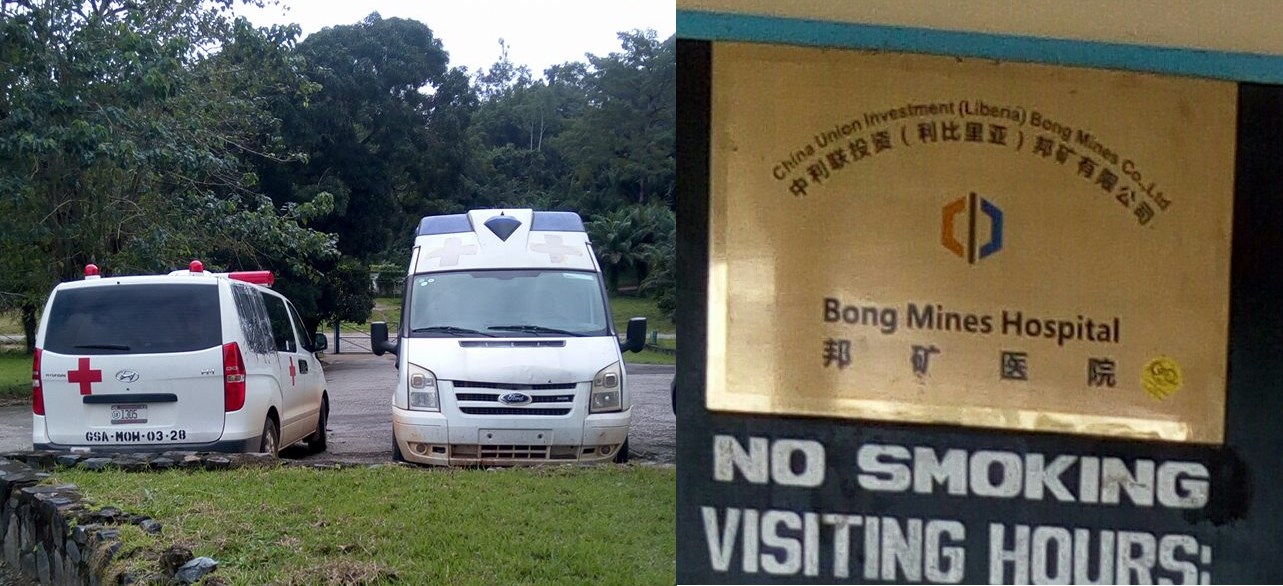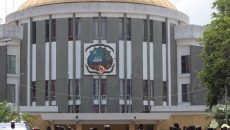FUAMAH, Bong – The Bong Mines Hospital is experiencing a financial crisis which has rendered the referral hospital incapable of offering essential medical services to the over 40,000 residents located in that region of Lower Bong County.
In June 2016, China Union turned over the Bong Mines Hospital to the Liberian government after almost three years of operation.
The hospital was built by the former Bong Mining Company but was taken over by China Union as part of a 25-year mineral development agreement signed in 2009. The hospital was one of China Union’s corporate social responsibilities.
But the declining prices of commodities and raw materials forced the company to turn the hospital over to the government. Although the hospital faced minor challenges before the June handover, the situation has become much worse since the government assumed responsibility.
The 100-bed hospital now faces several challenges, including the lack of drugs, the lack of stable electricity, as well as the failure of the government to pay the salary of staff for nearly four months now. The hospital also has no running water in addition to the absence of any doctors. The one doctor who was assigned at the hospital was being paid by China Union; he left after the handover when it was clear that the government could not pay his salary.
Francis Kollie, Fuamah’s district health officer, said if nothing is done to address the immediate challenges facing the only health facility in this remote region, it could face imminent closure.
“The entire health system here is broken down,†Kollie noted. He said government officials never included the hospital’s operational costs in the national budget.
The man managing this tough environment is Alvin Sirleaf, the hospital’s administrator. Sirleaf reiterated the complaint that for four months now, workers have not been paid, there is a severe shortage of drugs, and the hospital lacks a steady supply of fuel to run the generator.
“I am just so tired of talking about the challenges we face. Everyone knows what we are going through,†he said.
During a visit to the hospital, the facility was down to its last few gallons of fuel. The hospital has been able to acquire a small fund after its administrators lobbied with health officials in Monrovia, but the building now only has electricity for six hours a day instead of 24.
Sirleaf said this cannot go for too long. Sooner or later, the hospital will have to start operating without electricity.
He said for the facility to run for 21 hours a day, it would need 40 gallons of fuel. At a market price of US$3.10 a gallon, this means the hospital would need US$124 a day or US$3,720 a month to purchase fuel.
When the hospital was operated by China Union, services were provided for by fees charged to patients. This prevented many low-income earners from seeking medical services at the facility.
But with the government taking over and promising free healthcare services as part of the government’s Resilient Health Care program, the patient load has increased from around 30 to 120 daily for the outpatient department.
This increase in the number of patients has outstretched the capacity of the hospital, and the limited resources have constrained the hospital to fully operate.
Under China Union’s administration, the company provided between US$3,000-4,000 to purchase drugs alone. But now with the company out of the equation, Sirleaf puts the operational cost burden at a conservative US$120,000 per year.
Before the China Union takeover, the operating budget for the hospital was around US$60,000 between 2010 and 2011. But now, the reality has changed as prices for various materials and services have increased.
Despite knowing about China Union’s relinquishing its responsibility for the hospital and although government officials signed on to the transfer, it is unclear how the hospital will operate as health officials made no allotment in the current fiscal year’s budget for the hospital.
Featured photo by Emmanuel Degleh



